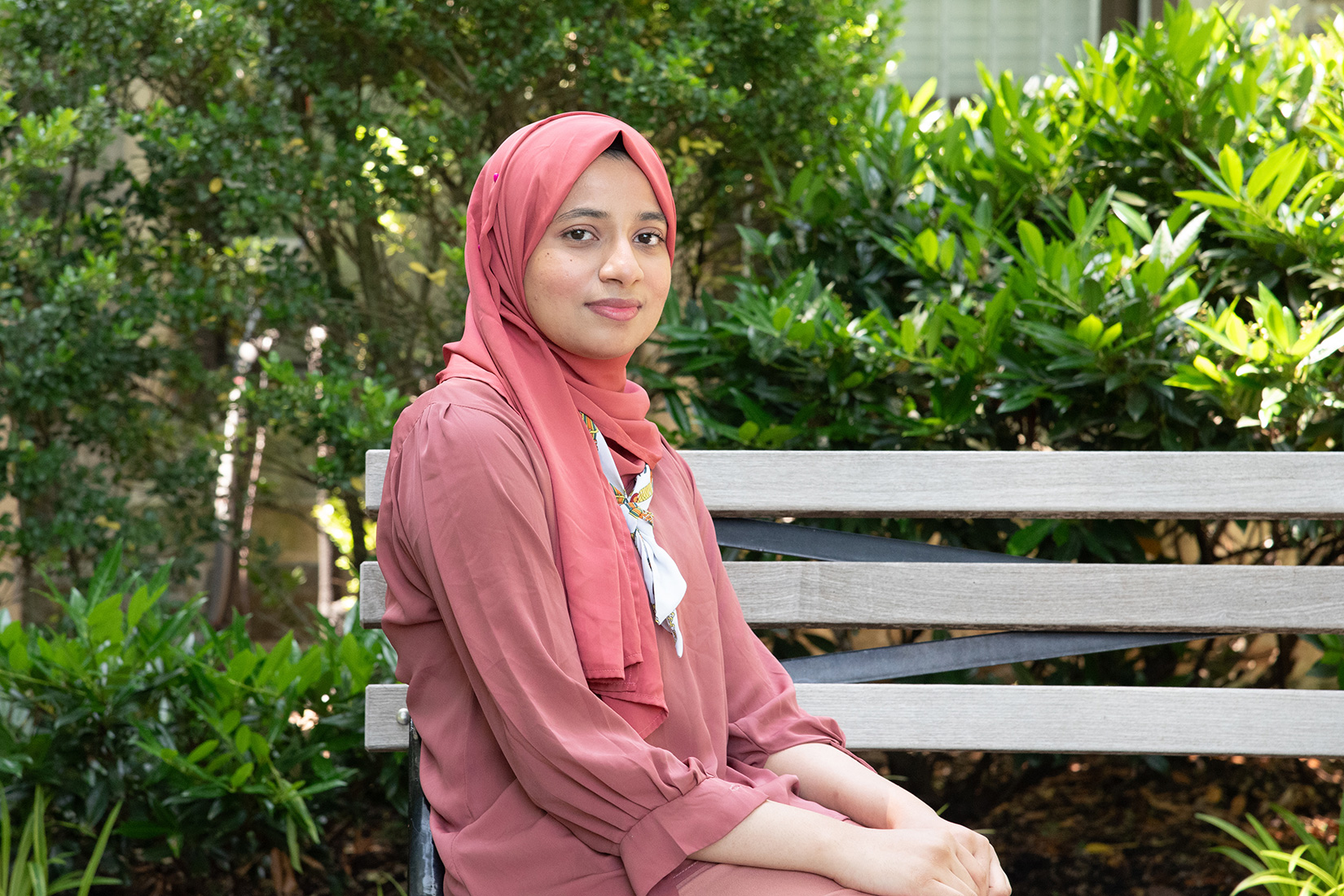
Nafisa Raisa credits Fordham's curriculum with her research success. Photo by Chris Gosier
How do cancer-causing genes evolve? For years, scientists have thought they knew how to predict this. And now it looks like their methods might not always be correct.
The scientists bringing this knowledge to the fore include a new Fordham graduate, Nafisa Raisa, FCRH ’24, who is spending the summer on a computational model that sheds new light on how some cancer genomes evolve—important for gene therapies that treat cancer as well as efforts to eradicate cancer-causing gene mutations.
It’s a research area she discovered because of the interplay between her multiple majors: biological sciences and a joint program in mathematics and computer and information sciences.
And she might not have wound up pursuing that mix of majors if not for Fordham’s core curriculum, which allowed her to discover all three fields early on. “Looking back now,” she said, “I feel so grateful for the opportunity to explore.”
A Unique Mix of Majors
Raisa, a native of Bangladesh, had never used a computer or sent an email when she immigrated with her family to New York for her senior year of high school. But computers quickly caught her interest, as did math and biology.
Later, in biology classes, she learned about the principle—called parsimony—that genomes follow the quickest path in evolving to the next stage. But this idea didn’t quite mesh with what she was learning about mathematical genomics. For a 2023 summer research program at Columbia University’s Irvine Institute of Cancer Dynamics, she sought out two mentors whose research showed that, under certain conditions, parsimony doesn't always guide a genome's evolution.
Since then, she has produced an innovative computational model of how some cancer genomes evolve more slowly. The model has implications for treating cancer patients but also for keeping cancer-causing genes from being passed on to their children and grandchildren.
“Hopefully, if we have the correct understanding of how it’s working, we can completely cure cancer and many other genetic diseases,” she said.
Findings Impress Conference Goers
She presented her findings in the spring at the annual International Conference on Research in Computational Molecular Biology, held at the Massachusetts Institute of Technology.
She was nervous, being “so much younger than everyone else” and presenting provocative findings, she said. But things turned out well—“I remember seeing everyone’s jaw dropping and people are like, ‘No, no, that doesn't make sense,’” she said. “But once I explained the whole thing and answered their questions, people were very appreciative and showed a lot of interest.”
Next? Cancer Research with Bioinformatics—and a Prestigious Fellowship
This summer, Raisa is applying her model to particular cancers, supported by a Fordham research grant. In the fall, she begins a prestigious two-year National Institutes of Health fellowship designed for postbaccalaureate students and aspires to a career in bioinformatics—another field she learned about at Fordham.
In other explorations during her Fordham career, she was a machine learning research intern for the University’s Project FRESH Air, focused on climate change and local air quality. She also developed a natural language processing model as a research intern at the University of Wisconsin-Madison.
The environment at Fordham made it all possible, she said. She received educational supports as a student in Fordham’s Higher Education Opportunity Program. And professors and deans were accommodating as she pursued independent research in addition to her requirements in biology, math, and computer science—building an academic profile that, she’s told, was critical in winning admission to research programs.
“I'm thankful to Fordham for allowing me to do it,” she said. “The deans, advisors, HEOP, and the Office of Prestigious Fellowships all have been very helpful [in] guiding me through.”